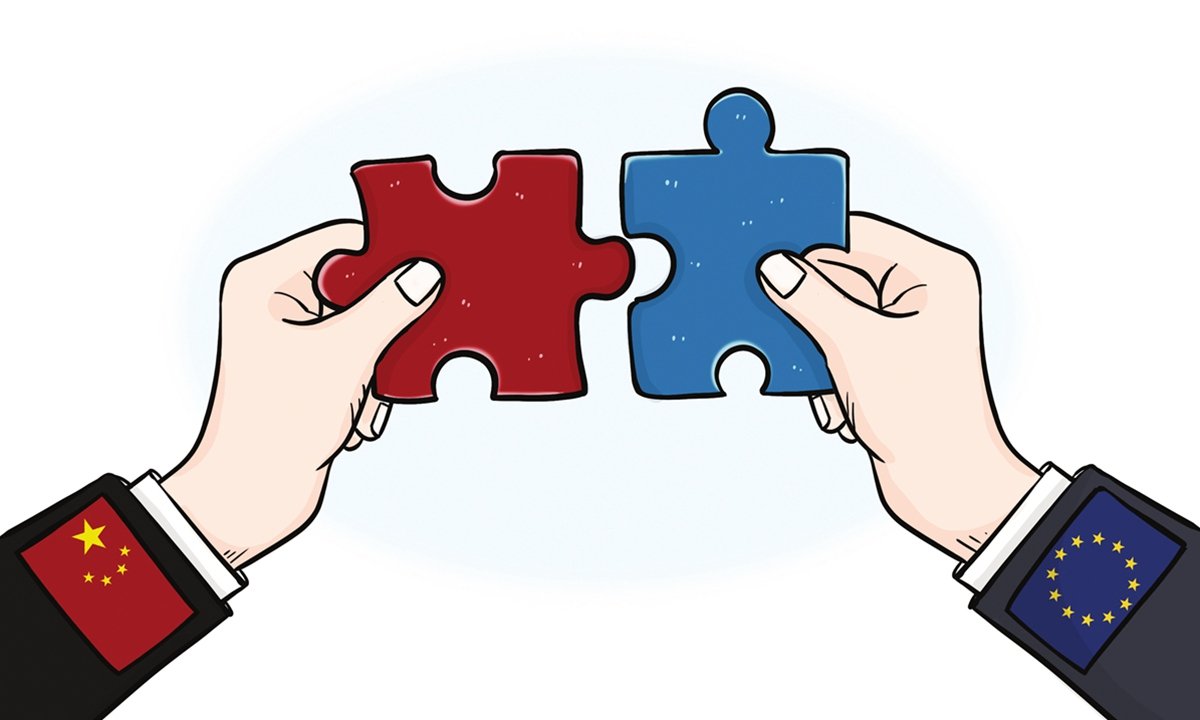Over the past few weeks, the world has witnessed a flurry of diplomatic engagements between China and the European Union (EU). These interactions have covered a wide array of topics, from trade and digital issues to environmental protection. Amidst these discussions, both sides have managed to achieve significant milestones and find common ground. This series of exchanges reflects the growing importance of pragmatic communication in shaping the evolving relationship between the EU and China. It is increasingly crucial for the EU to develop a comprehensive understanding of China, all while navigating the challenges posed by external influences, particularly from the United States.
One noteworthy event on the horizon is the third China-Germany High-level Financial Dialogue scheduled for October 1st. This dialogue will bring together senior officials from China and Germany, including He Lifeng, a member of the Political Bureau of the CPC Central Committee and Vice Premier of the State Council, along with Christian Lindner, the Federal Minister of Finance of Germany. The forthcoming dialogue represents the latest engagement between China and the EU and will contribute to deepening mutual understanding, setting the stage for a potential China-EU leaders’ meeting later in the year.
Just recently, on a separate front, China and the EU concluded productive discussions during the 10th High-level Economic and Trade Dialogue. These talks led to multiple areas of consensus, marking a notable step forward in their pragmatic ties. Furthermore, on September 9th, Chinese Premier Li Qiang held a meeting with European Commission President Ursula von der Leyen on the sidelines of the G20 Summit in New Delhi. These increasingly frequent interactions are indicative of the evolving dynamics within China-EU relations.
Cui Hongjian, a professor with the Academy of Regional and Global Governance at Beijing Foreign Studies University, underscores the significance of these interactions, particularly in light of the evolving international and regional landscape. With discussions on Europe’s China policy becoming more diverse and varying perspectives on China, continued exchanges are essential for the EU to develop a well-rounded understanding of China-EU relations. These interactions help the EU maintain a balanced perspective on its relationship with China.
However, even as China and the EU engage in dialogue, negative factors originating from the EU side may threaten to dilute recent achievements. To ensure that China-EU relations remain on a cooperative track, both parties need to work in tandem. Challenges and uncertainties persist, especially in the EU’s “derisking” industry policy measures targeting China. In mid-September, European Commission President Ursula von der Leyen announced an investigation into Chinese electric vehicles (EVs), alleging that the prices of imported Chinese vehicles are artificially low due to substantial state subsidies.
Another area of concern is the EU’s approach to China’s 5G technology. Germany recently joined other European countries in proposing restrictions or bans on the use of equipment manufactured by Chinese companies like Huawei and ZTE, citing security concerns. This move came after the EU’s industry chief, Thierry Breton, urged more member states to participate in efforts to restrict or block these companies from European 5G telecoms networks.
In a significant development, Germany announced that it would no longer grant promotional loans to China starting in 2026. Additionally, it would cease considering China as a developing country. This decision has been viewed by Chinese experts as a reflection of some German politicians aligning themselves with the United States in a broader effort to promote “decoupling” from China and create trade barriers aimed at the country.
These actions suggest that certain EU politicians are yielding to pressure from the United States’ adversarial stance toward China. Chen Hong, an independent analyst on global economy based in Beijing, highlights that this protectionist mindset, particularly amid a global economic downturn, could dampen European enterprises’ confidence and expectations in the Chinese market. It risks undermining the hard-won progress achieved in bilateral talks between China and the EU.
Chen emphasizes that, despite these challenges, there remains a solid foundation for economic cooperation between China and the EU. Dialogues and exchanges should continue to be the predominant approach rather than succumbing to the pressures of “decoupling.” In a world grappling with risks in global supply chains and economic challenges, cooperation is more critical than confrontation. This underscores China’s call for a cooperative and open-minded approach to resolving misunderstandings.
Cui Hongjian further observes that, unlike the United States, which regards China as a long-term strategic competitor, the EU does not possess the same level of strategic anxiety about China. However, the trilateral linkage between China, the United States, and the EU has grown increasingly complex, featuring elements of both competition and cooperation. The frequent engagements between China and the United States have, to some extent, spurred the EU’s enthusiasm for dialogue with China. The EU’s primary concern is to ensure that its interests are safeguarded when China-US relations undergo changes.
The relationship between China and the EU embodies a complex interplay of interactions. While both sides seek dialogue and consensus, negative perceptions of China within the EU can offset the progress made through these interactions. Hence, it is imperative for China and the EU to collaborate and strike a balance, ensuring that their bilateral relations stay on the right track. As they navigate these challenging waters, the dynamics between China and the EU will continue to evolve, with dialogue and cooperation remaining essential elements in this complex relationship.
Read More;
